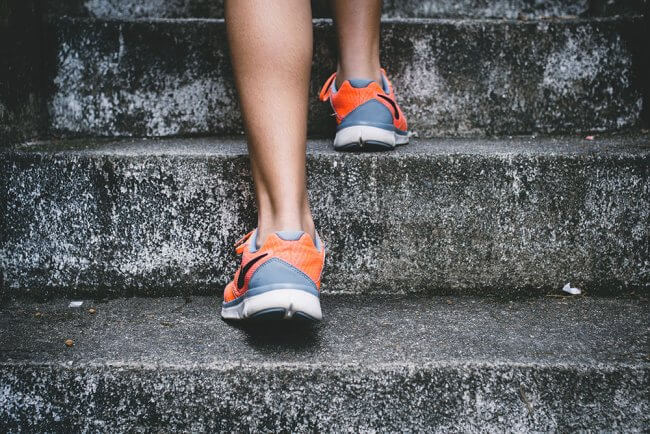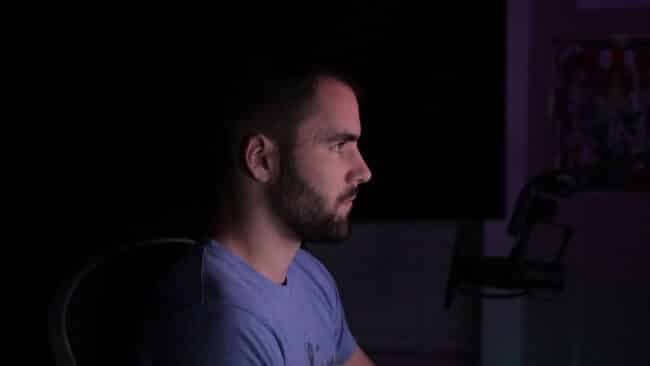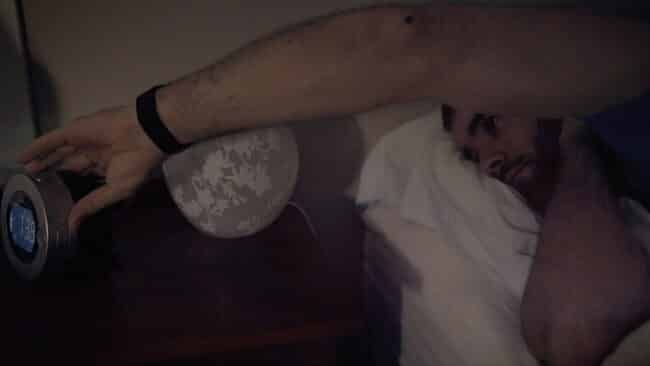Do you remember the last time you had a really good night’s sleep?
If you’re in college, it may have been awhile. College students aren’t exactly known for their amazing sleep habits. People brag about caffeine-fueled all-nighters and only needing two hours of sleep a night.
But despite what you might like to think, there’s no substitute for good quality sleep. Sleep is like an oil change for your body. Just as fresh oil keeps your car’s engine running cleanly and smoothly, so does a good night’s sleep keep your body in top running condition.
Sleep rebuilds muscle, regulates your metabolism, and helps you stay focused. Also, it’s an integral part of the learning process. Since learning is basically your full-time job as a college student, getting excellent sleep is a must.
Most of us kind of suck at sleeping, despite it being something we’ve done every night for our entire lives. Even if we get the recommended 7-8 hours per night, many of us find ourselves waking up groggy and anything but well-rested. Luckily, this is a problem you can fix with a few simple changes. In today’s post, we’ll break down five essential tips for falling asleep faster and sleeping better.
1. Avoid Caffeine 6 Hours Before Bed

Drinking caffeinated beverages doesn’t just hurt your sleep if you drink them right before bed. A 2013 study in the Journal of Clinical Sleep Medicine found:
“…a moderate dose of caffeine at bedtime, 3 hours prior to bedtime, or 6 hours prior to bedtime each have significant effects on sleep disturbance relative to placebo.”
In other words, you should probably stick to your coffee and tea in the morning or early afternoon.
If you want to drink something hot in the evenings, I’d suggest you look into herbal tea. There are even certain blends that contain chamomile, mint, or other herbs that can aid with relaxation and sleep.
Do you use caffeine to keep you awake in the afternoon? Here are some ways to beat that afternoon slump without the coffee.
2. Exercise Earlier in the Day

Regular exercise is excellent for your energy levels, brain function, and general health.
However, exercise also raises your core body temperature and places a small amount of stress on your central nervous system.
Both of these factors can make it more difficult to fall asleep. Avoid this problem by shifting your workout to earlier in the day. As an added bonus, the gym tends to be less busy then, anyway.
3. Limit Your Exposure to Blue Light

Our eyes contain an amazing mechanism called photosensitive retinal ganglion cells (say that five times fast!).
These cells monitor the amount of blue light in our environment, increasing the production of melatonin (a sleep-inducing hormone) when the amount of blue light decreases. Basically, what this used to mean was that we would naturally get tired when the sun went down, since blue light doesn’t exist naturally when it’s dark.
In our current world, however, we have an endless number of phones, computers, and other screens that emit blue light all the time. This can really mess with our bodies’ natural sleep cycles, making it hard to fall asleep.
Luckily, there are a few different ways to combat this problem:
- Turn off all screens after a certain time. I power down my phone and computer at 9 pm in preparation for bed. This makes sure I don’t have blue light bothering me right before I sleep.
- Install blue light-reducing apps. For Mac, Windows, and Linux there’s an app called F.lux, which gradually shifts the color temperature of your screen to correspond to the time of day. It takes some getting used to at first, but now I don’t even notice it. For iPhone, there’s a built-in feature called “Night Shift” which you can set to make the screen color temperature more orange after sunset. On Android, there’s an app called Twilight that does the same.
- Wear blue light-blocking glasses. I’m not suggesting you go around wearing these glasses all day (not exactly the most stylish choice), but they could be a good option to wear around your residence in the evening since they block all sources of blue light, including the nasty fluorescent tubes that probably illuminate your dorm room (which you can improve).
4. Turn Your Alarm Clock Away from Your Bed

The sleep cycle happens in different stages. Over the course of the night, we’re more awake during some of these stages than others. Near the beginning of the sleep cycle, many people will even wake up completely before moving into a deeper phase of the cycle.
Having your alarm clock staring you in the face with the amount of time you have left till you have to wake up for school, work, or saving the world can be stressful, which just makes it harder to go back to sleep.
If you use your phone as an alarm, make sure it’s not sitting within reach of your bed. That way you won’t be tempted to reach over and check the time or, worse, get distracted by some notification. Or, better yet, put your phone in Do Not Disturb mode so notifications can’t bother you while you’re asleep.
5. Optimize Your Sleep Environment

- Pillow – Replace your pillow every couple of years. This keeps it supportive and, frankly, more hygienic. Also, make sure you’re using a pillow that suits the way you sleep. For instance, if you sleep on your side like I do, you’ll want a firmer pillow for more support.
- Temperature – A cooler room is best for optimal sleep. The National Sleep Foundation recommends between 60 and 70 degrees Fahrenheit (16 and 21 degrees Celsius).
- Light – When it comes to sleep, darker is better. Eliminate unwanted outside light using blackout curtains, and tape over any bright lights on your computer or other devices. If blackout curtains aren’t practical (if you’re staying in a hotel or someone else’s house, for instance), consider getting a sleep mask.
- Sound – Silence isn’t necessarily better. This is because “silence” is often inconsistent. Whether it’s your neighbors who decided that 3 am is the best time to have a DDR battle or just your snoring roommate, college life is full of sounds that can make it difficult to sleep. To create a more consistent noise environment, try a white/ambient noise generator such as Noisli. If complete silence is best for you, pick up a pair of ear plugs (these are also great for sleeping in noisy environments like buses, airports, or hostels).
If you’re unable to see the video above, you can view it on YouTube.
Looking for More Study Tips?

If you enjoyed this article, you’ll also enjoy my free 100+ page book called 10 Steps to Earning Awesome Grades (While Studying Less).
The book covers topics like:
- Defeating procrastination
- Getting more out of your classes
- Taking great notes
- Reading your textbooks more efficiently
…and several more. It also has a lot of recommendations for tools and other resources that can make your studying easier.
If you’d like a free copy of the book, let me know where I should send it:
I’ll also keep you updated about new posts and videos that come out on this blog (they’ll be just as good as this one or better) 🙂
Video Notes
- My sleep playlist
- Another great sleep playlist on Spotify
- The Science Behind Getting Better Sleep – In Episode 124 of the CIG Podcast, I interview Dr. Michael Breus, a sleep expert. He shares his research about chronotypes and how understanding them can help us sleep better.
- How to Build a Habit of Waking Up Early – In this video, I discuss how to become an early riser.
- How to Get to Bed on Time and Stop Losing Sleep – The quality of your sleep doesn’t matter if you’re not getting enough of it. This video shows how to always get to bed on time.
Have something to say? Discuss this episode in the community!
If you liked this video, subscribe on YouTube to stay updated and get notified when new ones are out!
Images: shoes


